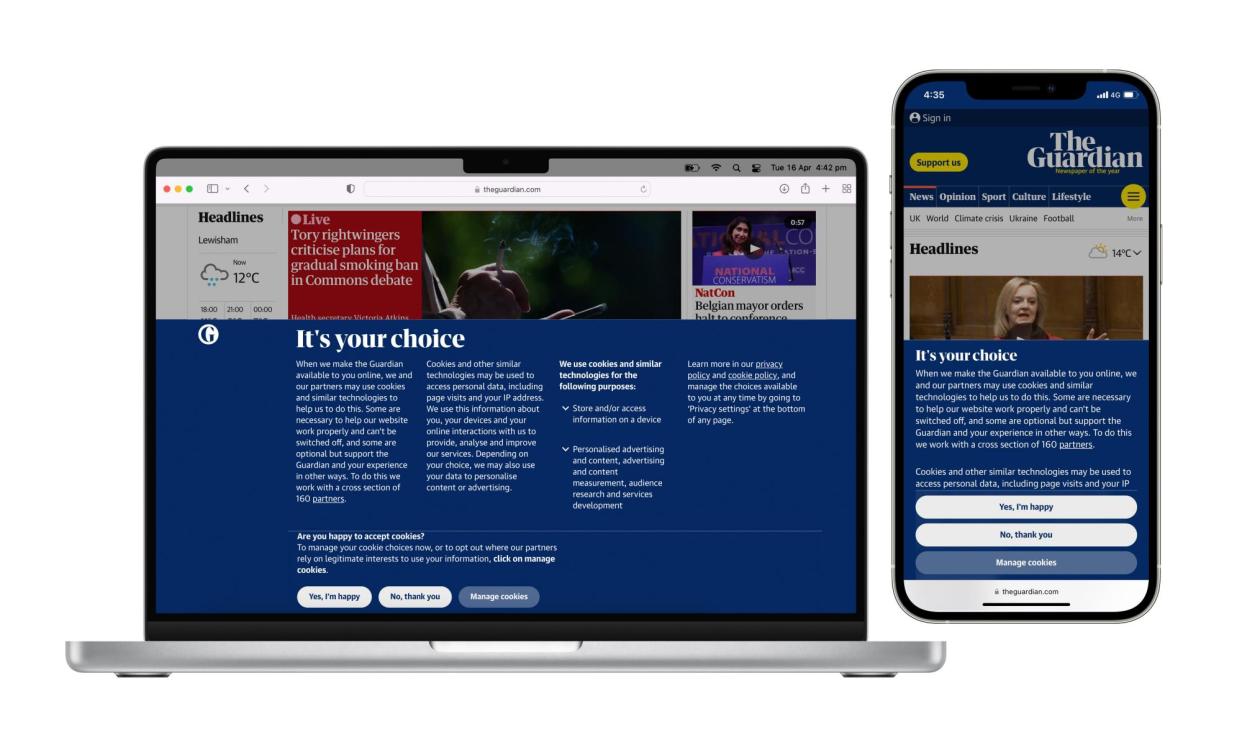What ‘rejecting all’ means for funding open journalism

Advertising has always played a key part in the Guardian’s history with businesses using our pages (print and digital) to connect with an audience of readers who might buy their products. The way advertising is bought and sold has changed a lot since the first edition of the Guardian was published over 200 years ago, with the majority of advertising now served online.
Beyond advertising, the ways in which journalism is funded are also changing. The Guardian is a wholly independent media organisation – we don’t get money from a billionaire or state backing our business. In fact, over half of the money needed to fund our journalism now comes directly from readers, with a quarter still coming from advertising. And with the ongoing challenges the world is facing, and the pressures on news business models, this advertising money remains crucial to funding hundreds of journalists so that we can deliver quality, independent reporting to readers across the globe without a paywall.
We take a responsible approach to advertising. We were the first major media outlet to ban advertising from fossil fuel extraction businesses, and more recently decided to stop taking advertising from gambling companies. Responsibility stretches beyond the brands that we work with; it also applies behind the scenes too. In step with data privacy laws, we treat our readers with fairness, giving them transparency and control over how their data is used. We ensure that no non-essential cookies are activated until readers make an active choice on our consent banner.
From this week, we’ll be making that active choice for new users even clearer by giving greater parity to a new ‘reject all’ button to sit alongside the ‘accept all’ button on the front of our consent banner. Readers who decide to ‘reject all’ will continue to see advertising - but in a way that isn’t reliant on first or third party cookies, tracking or programmatic auction technology.
You might also start to see more messages on articles asking you to support the Guardian in other ways. The reality is that without the use of data to personalise advertising to readers, brands will spend less money on advertising with publishers like us. Less money generated from advertising means that we need to ask readers to contribute to funding our journalism directly.
If you agree that access to trustworthy, factual information being open to all is important, you can support the Guardian with as little as £4 a month by clicking here.

 Yahoo News
Yahoo News 
